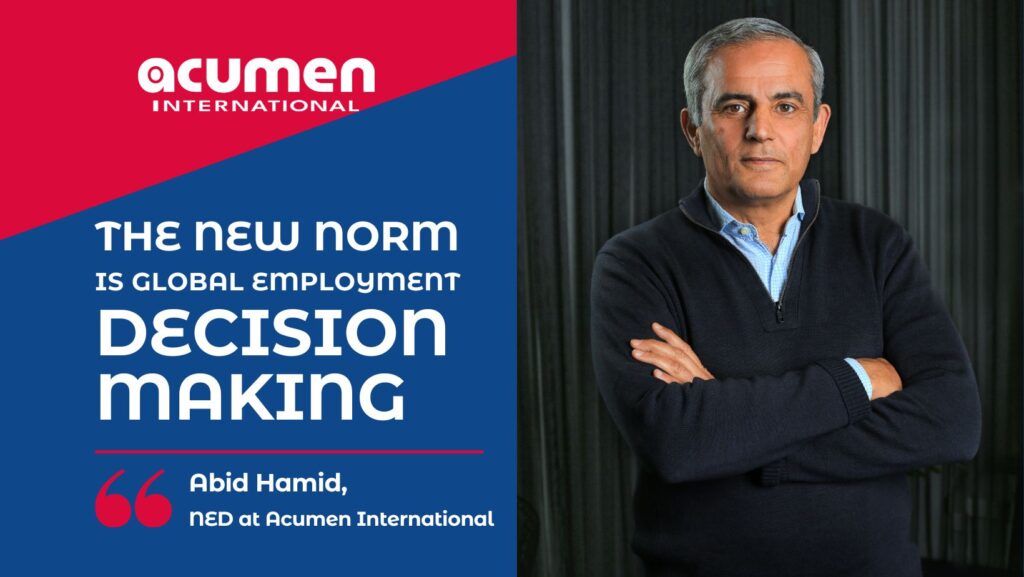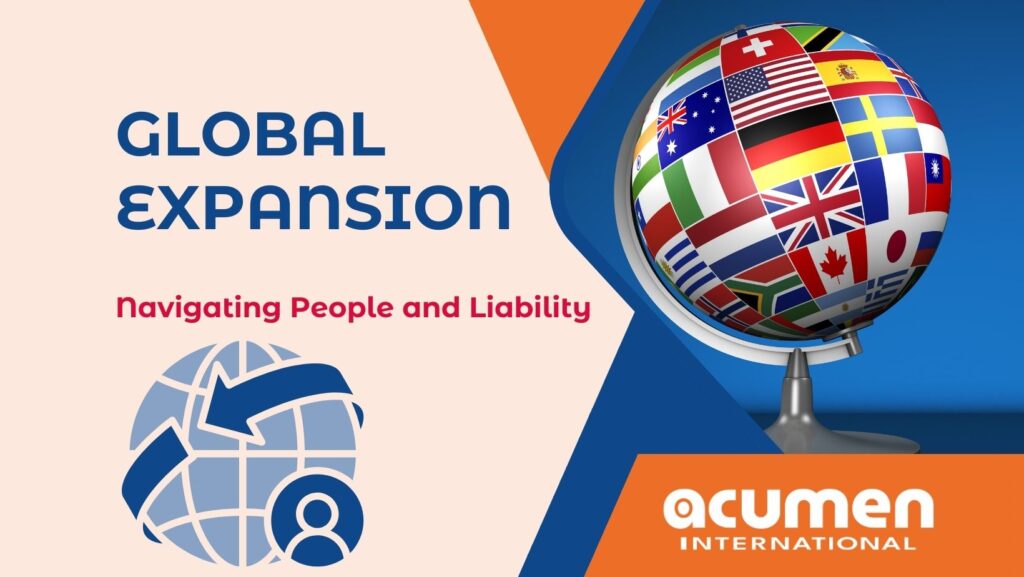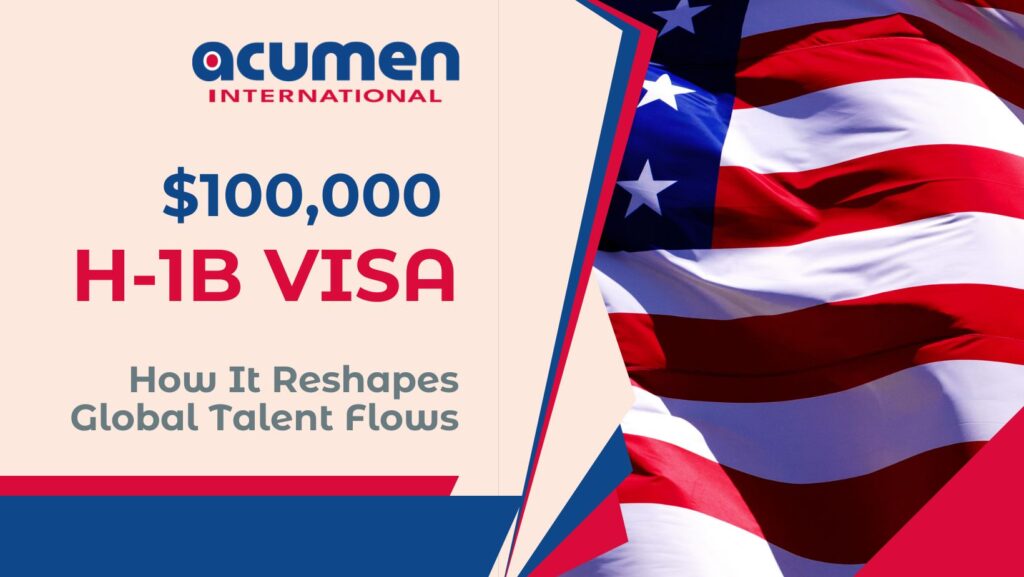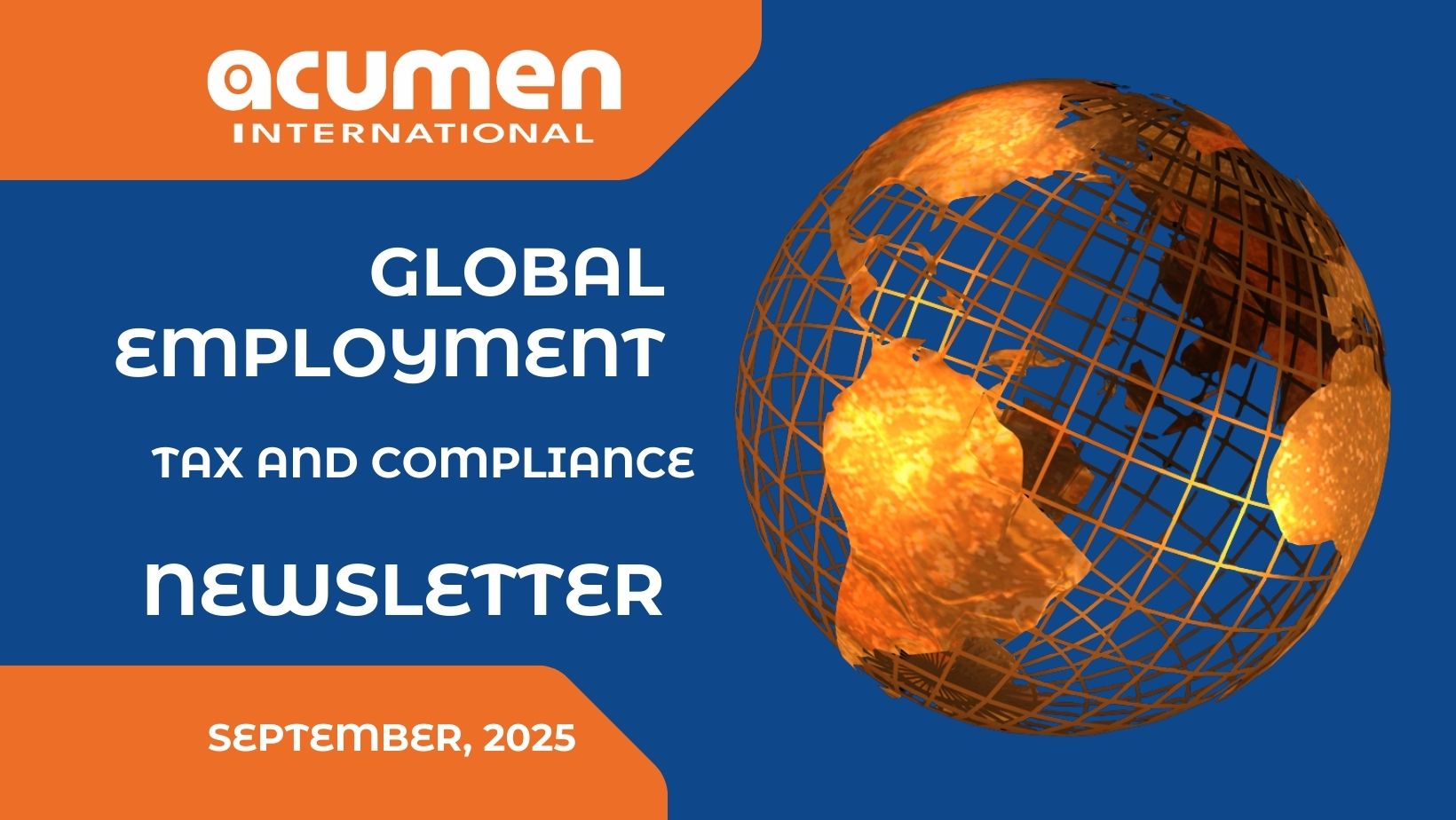Edition 33 marks almost three years of continuous reporting on global labour, tax, and immigration change. Since launch, the goal has been consistent: to give global HR, legal, and mobility leaders clarity on the rules that decide where and how international teams can be employed.
Month by month, we have tracked how governments use employment, tax, and immigration policy as active levers, raising costs, tightening oversight, or redefining compliance conditions. Each edition distils these developments into employer-relevant insights: what has changed, why it matters, and how it affects hiring and mobility in practice.
September 2025 is no exception. From the U.S. H-1B fee to India’s new Immigration Act and Europe’s latest compliance reforms, the changes we cover here are the points where budgets, obligations, and global workforce planning intersect.
Our aim is to deliver actionable intelligence — insights you can use directly to keep operations lawful, resilient, and prepared for the next wave of change.
United States: Visa and Fee Changes
The White House issued a Presidential Proclamation on 19 September, 2025 tightening entry for certain work-visa categories; agencies and law firms released FAQs summarising scope and carve-outs as guidance settles. In parallel, the administration announced a US$100,000 H-1B fee on new applications, which has drawn immediate industry and legal scrutiny around implementation and impact.
The Department of State introduced two processing shifts: from 6 September, non-immigrant visa applicants are expected to book interviews in their country of nationality or residence; and from 1 October, interview-waiver eligibility narrows substantially, with most applicants, including under-14s and over-79s, required to attend in-person interviews (limited exceptions apply). Plan for fewer third-country appointments and longer lead times.
Separately, immigrant visa numbers tightened at month-end: EB-2 hit its annual limit for FY2025 (issuance pauses until 1 October), and the September Visa Bulletin confirms the DV-2025 cap is reduced to 52,056 due to statutory deductions. Expect short-term scheduling constraints for consular processing in impacted categories.
Employer action: pause non-essential travel for affected H-1B cohorts until fee mechanics and agency guidance are clear; re-brief recruiters and candidates on interview-location rules; build extra lead time into all NIV renewals; and check green-card case strategies where EB-2 backlogs or DV limits may affect FY-end timing.
Further Reading: How $100,000 H-1B Visa Fee Could Reshape Global Talent Flows
United Kingdom: Umbrella Company Liability Guidance
On 17 September, HMRC published detailed guidance on the Finance Bill 2025/26 provisions extending liability in labour supply chains. From 6 April 2026, recruitment agencies and end-clients may be held jointly and severally liable for PAYE and NIC where an umbrella company is involved.
The draft legislation targets non-compliant umbrella models that misreport pay or deduct unlawful charges. The new framework clarifies who in the chain must account for employment taxes and gives HMRC broader enforcement scope. While enforcement is still months away, the September guidance sets out how the rules will apply in practice.
Employers using umbrella or intermediary models should map their labour supply chains now, review contractual protections, and ensure payroll checks are in place ahead of the April 2026 start date.
Netherlands: Budget Day Tax Proposals
On 16 September (Budget Day), the government set out proposals for 2026 that will affect global mobility and payroll. From 1 January 2026, reimbursements under the actual-cost scheme (ETK regime) can no longer cover cost of living allowances or private phone expenses. The 30% ruling itself remains unchanged, but existing caps and phased reductions will continue to tighten over the next two years.
Other measures include an increase to the early retirement levy (rising from 52% to nearly 65% by 2028), higher deemed investment returns in Box 3, and a new employer penalty tax on fossil-fuel company cars used privately, set to apply from 2027. Minimum salary thresholds for expat eligibility will also rise with indexation in 2026.
Employers with inbound staff should revisit compensation packages, model the impact of capped allowances, and prepare for higher costs in areas such as company cars and retirement bridging payments. Early review will help avoid sudden adjustments once the rules take effect.
Spain: Labour Inspectorate 2025–2027 Plan
On 12 September, Spain’s Labour and Social Security Inspectorate published its new three-year strategic plan. The programme runs until 2027 and reflects recent labour reforms, the digitalisation of work, and Spain’s commitments under the UN Sustainable Development Goals.
The plan centres on stronger worker protection and equality. Priorities include closer checks on working hours and pay, enforcement of health and safety standards, monitoring of equality and anti-discrimination measures, and stricter oversight of digital platforms and potential false self-employment. The Inspectorate also highlighted its intent to expose hidden employment and expand cooperation with law enforcement to address serious abuses such as forced labour.
Employers in Spain should anticipate more active inspections and broader scrutiny of HR and payroll practices. Clear documentation of working time, contracts, and equality initiatives will be increasingly important to demonstrate compliance during audits.
Italy: Decree Law on Foreign Work
On 4 September, the Italian Cabinet approved a decree law designed to tighten control over irregular work and improve the processing of legal entries. The stated aim is to ensure “legal and orderly” labour migration while countering illegal recruitment and exploitation.
The decree revises several administrative timelines. Authorisations for contracted employment will now run from the point an application is included within the annual quota, not from the date of submission. Verification of employer declarations has also been expanded to cover a broader set of entry routes, including intra-company transfers, volunteering, research, and highly qualified roles.
Other measures include longer validity for certain residence permits, wider access to social assistance for victims of exploitation or violence, and the removal of quotas for workers in family care and social-health assistance roles. Seasonal employment rules tested in 2025 have been extended, and time limits for family-reunification approvals have been lengthened in line with EU standards.
Employers hiring in Italy should expect stricter scrutiny of sponsorship requests and should prepare for tighter oversight from labour inspectorates, particularly in sectors with high migrant participation.
Australia: English-language Rules Eased for 482 Visas
From 13 September, the government adjusted English test requirements for the Temporary Skill Shortage (Subclass 482) visa. The update lowers minimum component scores for the Pearson Test of English (PTE), making it easier for applicants to meet the language standard.
The change is part of broader reforms to attract skilled workers and speed up visa processing. It reduces barriers for employers recruiting internationally in sectors with ongoing shortages, particularly where strong technical skills outweigh minor gaps in language test performance.
Employers sponsoring staff under the 482 visa should update recruitment guidance and ensure candidates are briefed on the revised PTE thresholds. Applications already in progress may benefit from faster approvals if new benchmarks are met.
Germany: Supply Chain Act Amendments
On 3 September, Germany’s Cabinet adopted amendments to the Supply Chain Due Diligence Act. The move is designed to reduce immediate compliance costs for large employers until the EU Corporate Sustainability Due Diligence Directive (CSDDD) is in place.
What has changed
- Reporting dropped: companies no longer need to submit annual compliance reports to the Federal Office, with the change applying retroactively to 2023.
- Fines narrowed: penalties will only apply to serious human-rights breaches, such as failure to act on confirmed risks. Environmental obligations remain in law but are no longer directly tied to fines.
What remains
Employers with 1,000+ staff in Germany must still operate full due diligence systems: annual and ad-hoc risk analysis, preventive and remedial measures, supplier oversight, documentation, and a functioning complaints procedure.
The changes remove some bureaucracy but do not reduce liability for workforce or supply-chain risks. Multinational companies should continue to treat environmental and social compliance as binding obligations, particularly with the EU’s CSDDD set to bring stricter rules back into force. Workforce contracts, supplier terms, and HR reporting frameworks should be kept aligned with due diligence standards to avoid gaps when EU requirements take effect
Czech Republic: New Reporting Rules for Foreign Hires
From 1 October 2025, amendments to the Employment Act introduce the concept of “unreported work.” The reform tightens how employers must notify authorities when hiring foreign nationals.
- Employers must now report the planned start date of a foreign employee before work begins at the latest, one day in advance.
- Under the old rules, notification on the employee’s first working day was sufficient.
- Failure to meet the new deadline will be classified as unreported work, an administrative offence carrying fines of up to CZK 3 million.
The amendment aligns Czech law with EU practice and reflects a broader push against illegal employment. For employers, it means onboarding procedures for foreign staff must be updated to capture notifications in advance, not on the day of commencement.
Georgia: New Framework for Work Permits and IT visa
Amendments to Georgia’s immigration law, adopted in June 2025, start taking effect from September 2025, with further provisions due in March 2026. The reforms introduce a structured work-authorisation system and create a dedicated IT residence permit.
Key provisions:
- Work authorisation: foreign employees will be required to obtain work authorisation through a local employer, while self-employed foreigners must apply directly to the Ministry of Labour and Health. This obligation takes effect in March 2026.
- Visa and permits: after securing work authorisation, foreigners outside Georgia must apply for a D1 immigration visa within 30 days. Those already in the country must apply within 10 days for either a labour residence permit or the IT residence permit.
- Penalties: unauthorised work attracts fines of GEL 2,000 for both the foreign national and the employer or service organiser, with penalties doubling for repeat offences.
- IT residence permit: effective from 1 September 2025, a new three-year residence permit is available to IT professionals, small-business entrepreneurs in IT, and executives of international IT companies operating in Georgia, as well as their family members. Applicants must show at least two years of relevant experience and a minimum annual income of USD 25,000 (in GEL).
The new framework requires HR and mobility teams to update onboarding procedures and prepare for advance authorisation steps before foreign staff can begin work. For the IT sector, the dedicated residence permit creates a clear long-term path to attract and retain international talent.
India: New Immigration and Foreigners Act in Force
India’s new Immigration and Foreigners Act came into force on 1 September 2025, unifying rules for foreign nationals and shifting the system to real-time, digital oversight. Penalties have been increased: using or supplying forged travel documents now carries 2–7 years’ imprisonment plus fines of INR 100,000–1,000,000; entering without a valid passport/visa can draw up to 5 years’ imprisonment or fines up to INR 500,000. Tougher sanctions also apply to overstays and entry into restricted areas.
Institutions that host or enroll foreign nationals must now report electronically to the Registration Officer on short deadlines (e.g., within 24 hours for foreign-student enrolments), and accommodation providers must keep electronic records for at least one year. Carriers (air, sea and land) must file Advance Passenger Information and crew manifests pre-arrival; they can be held liable to remove passengers refused entry and face fines up to INR 500,000 for inaccurate/late data or transporting travellers without valid documents.
The Act expressly empowers audits/inspections of employer records for foreign staff. Corporate sponsors must keep onboarding data current and report onboarding, role changes and departures via the government portal. Foreign employees must register with FRRO/FRO (typically within 14 days of arrival) and submit biometrics (at entry or during stay). In practice, HR/mobility should align onboarding checklists, vendor arrangements (e.g., university/accommodation reporting) and travel protocols with the Act’s digital reporting and verification requirements.
The New Norm Is Global Employment Decision Making

Abid Hamid, NED at Acumen International, examines why international workforce strategy is no longer about employment cost or candidate availability alone. Political restrictions, localisation quotas, and digital visa systems mean the decisive question is whether a lawful route exists to employ people in the right place. In high-exposure sectors such as energy, defence, and advanced manufacturing, compliance frameworks are already dictating staffing timelines. The article argues that the real benchmark for employers has shifted: success is measured not by time-to-hire, but by time-to-lawful-work.
Read the full article: The New Norm Is Global Employment Decision Making
Global Expansion: Navigating People and Liability

“Global expansion” is used to cover everything from hiring one remote employee to acquiring an entire workforce. This article argues that the phrase is misleading, and that the risks are very different depending on whether a company is opening a sales office, setting up an entity, acquiring a team, or hiring through third-party models.
The core argument is that employment is the hinge point in every version of expansion. A contractor misclassified as an employee, a delayed transfer in an acquisition, or payroll running on terms that don’t match contracts can all turn growth into liability. The bigger danger is fragmentation: different vendors handling payroll, visas, and contracts without alignment, leaving gaps that regulators and employees both see.
The article also walks through the expansion options — contractors, local entity setup, Employer of Record, and Global EOR — and shows how each can work, but only for a time. Every model has an inflection point where it stops being viable and forces a shift.
The lesson is simple: expansion is not a slogan but a chain of employment decisions, and the real cost is measured in liability if those decisions are wrong.
Read the full article: Global Expansion: Navigating People and Liability
United States: $100,000 H-1B Fee Shifts Global Hiring

The U.S. has introduced a US$100,000 surcharge on new H-1B applications, radically changing the cost of access to the American labour market. While officially framed as a corrective to outsourcing and wage suppression, the measure raises the entry cost of hiring skilled foreign staff and creates uncertainty over renewals.
Employers now face a choice between absorbing the surcharge for critical roles or redirecting teams to alternative hubs such as Canada, the UK, or Singapore. The fee underscores how immigration policy can be used as an economic lever, making flexibility in workforce planning essential.
Read the full article: How $100,000 H-1B Visa Fee Could Reshape Global Talent Flows
Looking Ahead Together
Every month we track the fine print so you don’t have to, highlighting what really matters for employers: how new rules affect your ability to hire, move, and retain staff globally. That has been the constant thread through all 33 editions of this newsletter.
If these insights help you see the road ahead more clearly, stay with us. Follow us on LinkedIn, subscribe to this newsletter, and when the moment comes to grow your team, whether that means placing a senior executive, building out a project group, or supporting a hybrid workforce across borders, know that you don’t have to navigate it alone. With us, you can hire confidently and keep your people secure, wherever in the world your business takes you.
